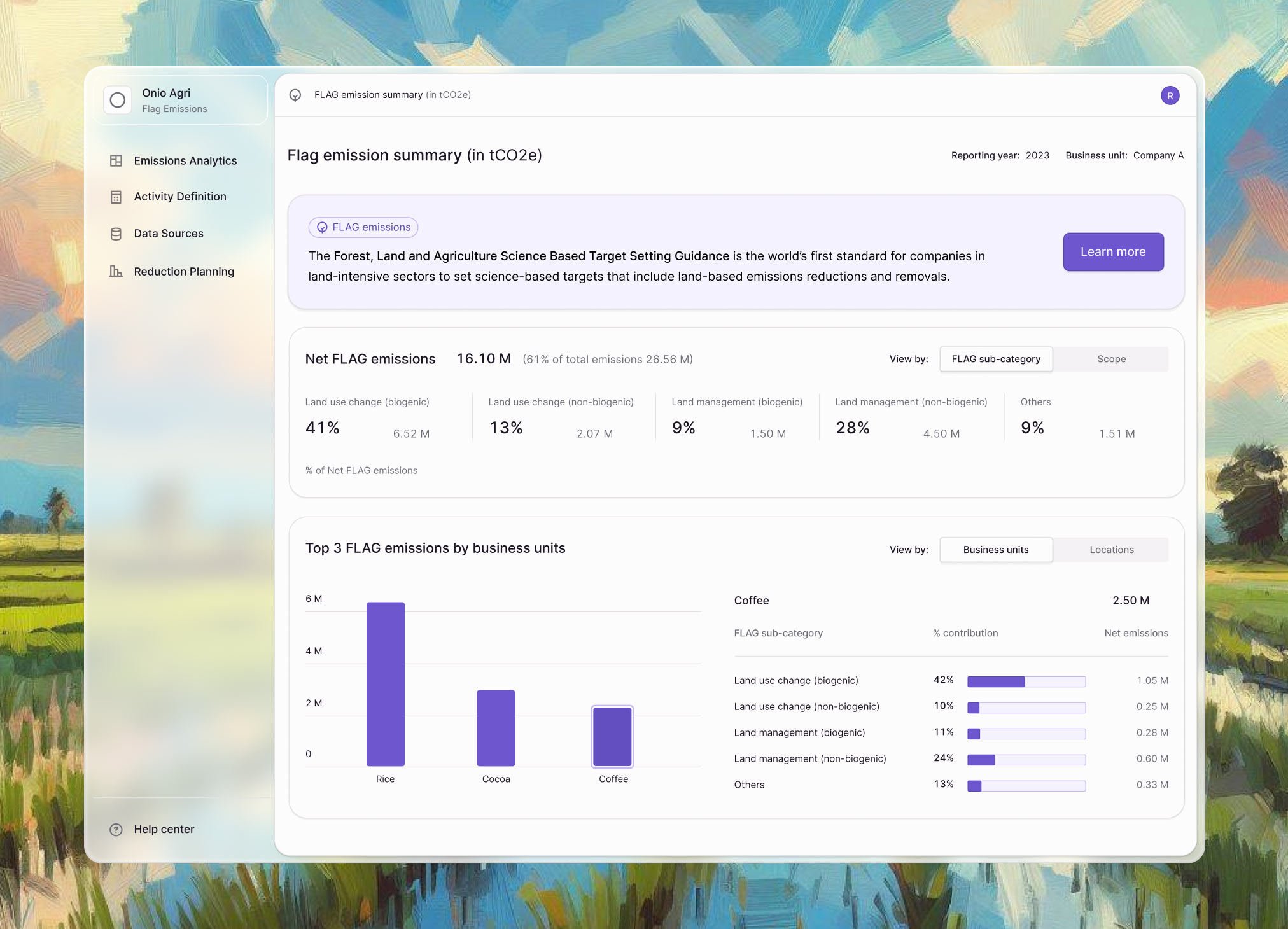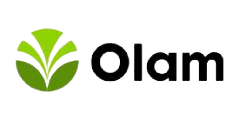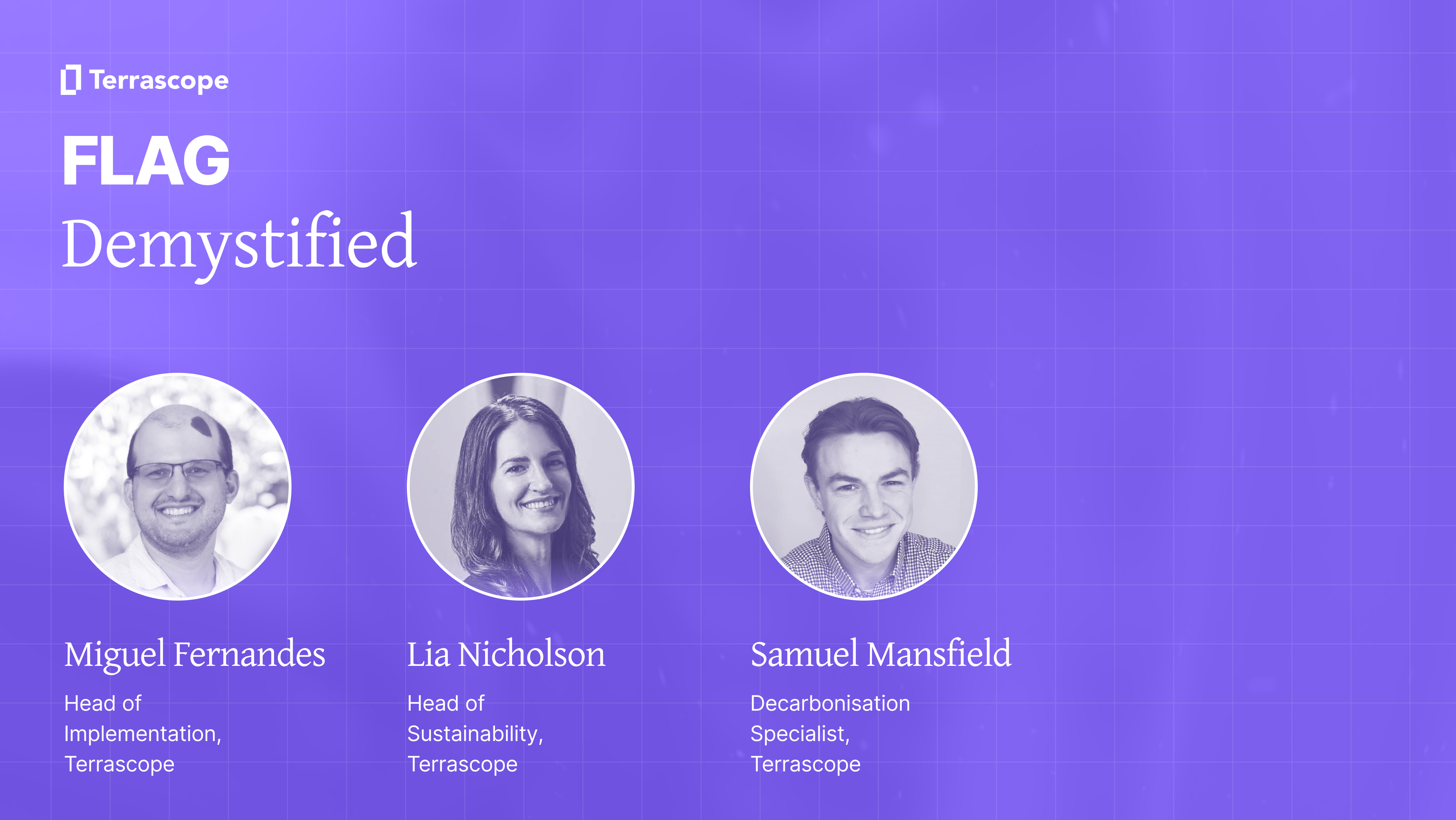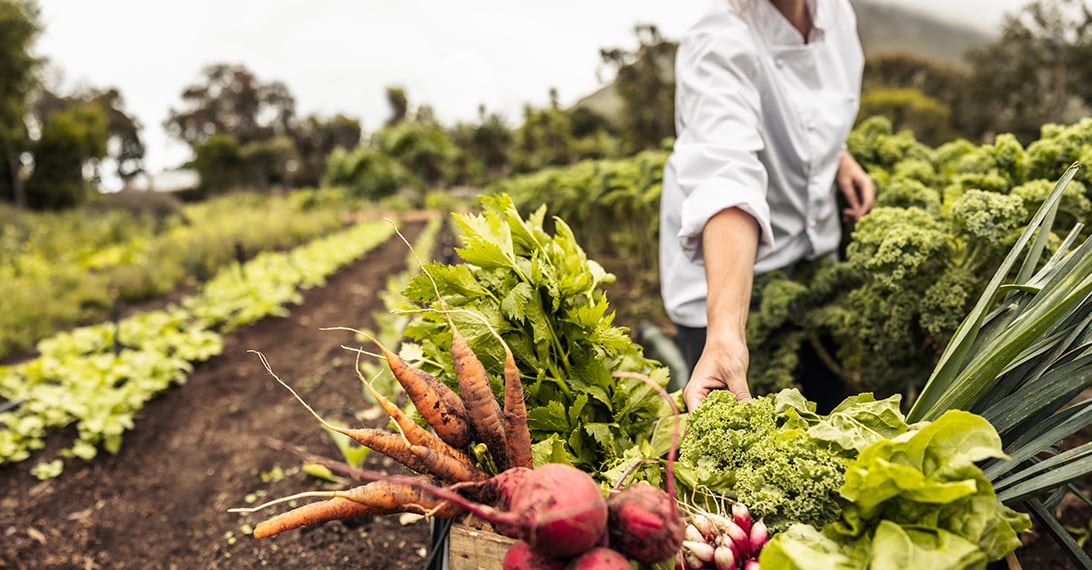The Complete Solution
for FLAG & LSR
The Forest, Land, and Agriculture (FLAG) guidance is a pioneering global standard for companies in land-intensive sectors to set science-based targets that include land-based emissions reductions and removals.
Industry-standard corporate sustainability targets have rarely accounted for emissions from land use change or the significant amounts of methane and nitrous oxide released as byproducts of agricultural practices and fertilizer use.

Complete the complex data processing, calculation, and reporting needed for FLAG submission in just 4-6 weeks
Data science led approach
Confidently understand your exposure to FLAG and leverage platform automation to disaggregate FLAG & non-FLAG emissions at scale, with consistency and accuracy
/solutions/flag%20and%20lsr/data-science-led.png?width=470&height=261&name=data-science-led.png)
Streamlined SBTi submission
Prepare and export the exact data needed to set your FLAG target and speed up your SBTi submission and validation process
/solutions/flag%20and%20lsr/sbti-validation.png?width=470&height=259&name=sbti-validation.png)
How Terrascope supports FLAG & LSR
Simplify the process of separating, reporting, and planning reduction initiatives for your Land-Based emissions and removals
/solutions/flag%20and%20lsr/flag-eligible.png)
Determine FLAG eligibility
Review your industry, operational, and value chain model to determine FLAG exposure, and the need for SBTi FLAG targets, and then align to the appropriate reporting pathway.
/solutions/flag%20and%20lsr/flag-emission.png)
Measure FLAG emissions
Calculate Land Use Change and Land Management emissions from your operations and supply chain, from fertilizer application, farm-level activities, livestock rearing, and more.
/solutions/flag%20and%20lsr/flag-target.png)
Submit and validate FLAG targets
Receive guidance on setting FLAG targets, the exact data, and metrics you need for SBTi submission, and develop long-term decarbonization strategies.
/solutions/flag%20and%20lsr/speedup-assurance.png)
Speed up assurance
Gain transparency of your FLAG methodology and derive an audit trail (supported by FLAG calculation data) to support the SBTi validation process.

"Terrascope has helped us to more completely and rigorously analyze and measure our carbon footprint. The team of experts at Terrascope guided us to identify the most material parts of our supply chain, to gather the correct information that's required, for robust carbon footprint, monitoring, and measurement."
Julie Greene
Chief Sustainability Officer

"There is a clear value-add from Terrascope in terms of both expertise and technology, adding huge credibility to the way we measure and report GHG emissions. I truly believe a technology like Terrascope can actually lead to the democratization of carbon management.”
Nikita Asthana
Global Head Sustainability Finance


Bridging the Gap Between Big Food and Smallholders: A Focus on Rice
December 09, 2023

Understanding the Land-based Economy: Agricultural Greenhouse Gas Emissions 101
May 30, 2024